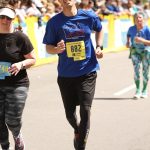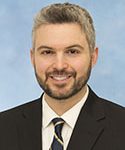NIDUS Blog
Investigator of the Month (May 2024): Dr. James Rudolph
Dr. James Rudolph is a geriatrician and palliative care physician. He has a long track record of delirium research and collaboration. Dr. Rudolph is amazed that a short-term health event, like delirium, can have a profound impact on the course of people’s lives. Like most delirium experts, he ran alone in his institution. And he […]
Comparison of the frailty index and frailty phenotype and their associations with postoperative delirium incidence and severity
Stacie Deiner MS MD, LeRoy Garth Professor and Vice Chair for Research, Department of Anesthesiology, Dartmouth University Medical School, Hanover, NH Studies show that preoperative frailty is associated with up to six times the odds of postoperative delirium, depending on which frailty measurement tool is used.1,2 There are two distinct paradigms of frailty measurement, Frailty […]
Investigator of the Month (April 2024): Dr. Stephanie Rogers
Dr. Stephanie E. Rogers is an Associate Professor of Medicine in the UCSF Division of Geriatrics and is the Associate Chief of Geriatrics Clinical Programs. Her academic focus is in implementation science, geriatric program building, and quality improvement, particularly in the area of making hospitalization and transitions safer for older adults. Dr. Rogers is also […]
Perioperative Neurocognitive Disorders and Putative Biomarkers
Contributed by Phillipe E. Vlisides, MD, Department of Anesthesiology, University of Michigan Medicine, Ann Arbor, MI Background Perioperative neurocognitive disorders represent a major public health issue, particularly among aging surgical populations. In fact, the American Society of Anesthesiologists has launched a Brain Health Initiative with the aim of protecting and preserving brain health in older […]
Investigator of the Month (March 2024): Heidi Lindroth PhD, RN
Heidi Lindroth, PhD, RN, is a nurse scientist and practicing critical care nurse at Mayo Clinic. She is passionate about improving the care of critically ill, hospitalized older adults and reducing the worldwide burden of delirium. Although delirium is preventable, interventions are not readily accessible or designed for patients and family use. While recognizing and […]
The Delirium Interview: a new reference standard for large studies evaluating delirium assessment tools
Contributed by Fienke L. Ditzel, MD; Arjen J. C. Slooter MD, PhD; and Suzanne C.A. Hut, PhD, University Medical Center Utrecht, Utrecht University, Utrecht, The Netherlands Rationale The gold standard for diagnosing delirium is the classification by a delirium expert based on the DSM-5(TR) criteria.1,2 When validating a new delirium assessment tool, ideally, a panel […]
Investigator of the Month (February 2024): Thiago J. Avelino-Silva, MD, PhD
Thiago J. Avelino-Silva, MD, PhD, is a geriatrician and T32 Aging Research Fellow at the University of California, San Francisco (UCSF). His medical education, Internal Medicine residency, and Geriatrics Fellowship were completed at the University of Sao Paulo Medical School in Brazil. His primary focus is geriatric hospital care research, with a particular emphasis on […]
Sleep Fragmentation, EEG Slowing and Circadian Disarray in a Mouse Model for Intensive Care Unit Delirium
Contributed by Nadia Lunardi, M.D., Ph.D., Associate Professor of Anesthesiology and Critical Care, University of Virginia and Michal Jedrusiak, M.D., Visiting Graduate Student, Anesthesiology Department, University of Virginia Introduction In 2020, our research group introduced a novel mouse model designed to investigate postoperative delirium.1 This model aimed to emulate the combination of surgical stress, anesthetic […]
Tags
Blog Topics
- Announcements & News (121)
- Delirium Research (82)
- AD/ADRD (10)
- Investigator of the Month & Spotlights (44)
- NIDUS Resources (8)
Citing a published NIDUS blog post on your CV
When citing a NIDUS blog post on your CV, list it in a section entitled ‘Other Non-Peer Reviewed Scholarship’. For the actual citation, list your name, blog title, organization (NIDUS), and the link to Blog. At the end, add ‘invited blog’ in brackets. This is the format suggested on the Harvard Med School CV template.
Example:
Sam Jones, My Delirium Blog Post, NIDUS, www.deliriumnetwork/my-delirium-blog-post.org (invited blog)







